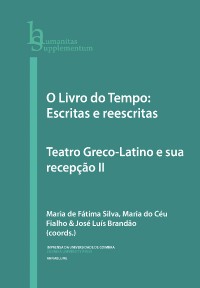Please use this identifier to cite or link to this item:
https://hdl.handle.net/10316.2/40909| DC Field | Value | Language |
|---|---|---|
| dc.contributor.author | Marques, Susana Hora | |
| dc.date.accessioned | 2017-01-02T10:23:15Z | |
| dc.date.accessioned | 2020-09-08T12:50:07Z | - |
| dc.date.available | 2017-01-02T10:23:15Z | |
| dc.date.available | 2020-09-08T12:50:07Z | - |
| dc.date.issued | 2016 | - |
| dc.identifier.isbn | 978-989-26-1297-3 | |
| dc.identifier.isbn | 978-989-26-1298-0 (PDF) | |
| dc.identifier.uri | https://hdl.handle.net/10316.2/40909 | - |
| dc.description.abstract | Medea, the heroine of a bygone era, is summoned to the contemporary stage in the writings of Carlos Jorge Pessoa, in particular through the inexorable association to the sudden and fatal downfall of the family unit, one of the leitmotifs central to his play Escrita da água: no rasto de Medeia. The re-enactment of Medea required the author to highlight the human and familial aspects of the character which are inserted in the social context of modern daily life. To follow on the trail of the princess from Colchis is an alleged reason to present on stage societal myths that embrace timeless values whilst at the same time questioning the family as the restricted nucleus that primarely shapes human development but also the contemporary societies. | eng |
| dc.description.abstract | Medeia, heroína de antanho, é convocada à cena contemporânea pela escrita de Carlos Jorge Pessoa, particularmente porquanto se associa de modo incontornável ao desmoronamento inesperado – e fatal - da família, um dos motivos fulcrais da peça Escrita da água: no rasto de Medeia. Revisitar Medeia implica para o autor destacar a dimensão humana e familiar da figura, que é inserida no contexto quotidiano do comum dos mortais da atualidade. Seguir no rasto da princesa colca é um pretexto para presentificar mitos civilizacionais representativos de valores intemporais, é um pretexto para questionar a família, núcleo restrito e primeiro de moldagem do ser, mas também as sociedades atuais. | por |
| dc.language.iso | por | - |
| dc.publisher | Imprensa da Universidade de Coimbra | por |
| dc.publisher | Annablume | por |
| dc.relation.ispartof | http://hdl.handle.net/10316.2/40906 | por |
| dc.rights | open access | - |
| dc.subject | Carlos Jorge Pessoa | eng |
| dc.subject | Medea | eng |
| dc.subject | rewritten | eng |
| dc.subject | Carlos Jorge Pessoa | por |
| dc.subject | Medeia | por |
| dc.subject | reescrita | por |
| dc.title | Carlos Jorge Pessoa, Escrita da Água: no rasto de Medeia | por |
| dc.title.alternative | (Carlos Jorge Pessoa, Writing on water: following Medea’s steps | eng |
| dc.type | bookPart | por |
| uc.publication.collection | Humanitas Supplementum | por |
| uc.publication.firstPage | 43 | - |
| uc.publication.lastPage | 53 | - |
| uc.publication.location | Coimbra | por |
| dc.identifier.doi | 10.14195/978-989-26-1298-0_3 | - |
| uc.publication.section | Recepção em Portugal e Em Espanha | por |
| uc.publication.digCollection | PB | por |
| uc.publication.orderno | 25 | - |
| uc.publication.area | Artes e Humanidades | por |
| uc.publication.bookTitle | O livro do tempo: escritas e reescritas: teatro greco-latino e sua recepção II | - |
| uc.publication.manifest | https://dl.uc.pt/json/iiif/10316.2/40909/205026/manifest?manifest=/json/iiif/10316.2/40909/205026/manifest | - |
| uc.publication.thumbnail | https://dl.uc.pt/retrieve/11071146 | - |
| uc.publication.parentItemId | 54663 | - |
| uc.itemId | 69020 | - |
| item.fulltext | With Fulltext | - |
| item.grantfulltext | open | - |
| Appears in Collections: | O livro do tempo: escritas e reescritas: teatro greco-latino e sua recepção II | |
Files in This Item:
| File | Description | Size | Format | |
|---|---|---|---|---|
| carlos_jorge_pessoa__escrita_da_a_gua_no_rasto_de_medeia.pdf | 622.25 kB | Adobe PDF |  |
Items in DSpace are protected by copyright, with all rights reserved, unless otherwise indicated.
